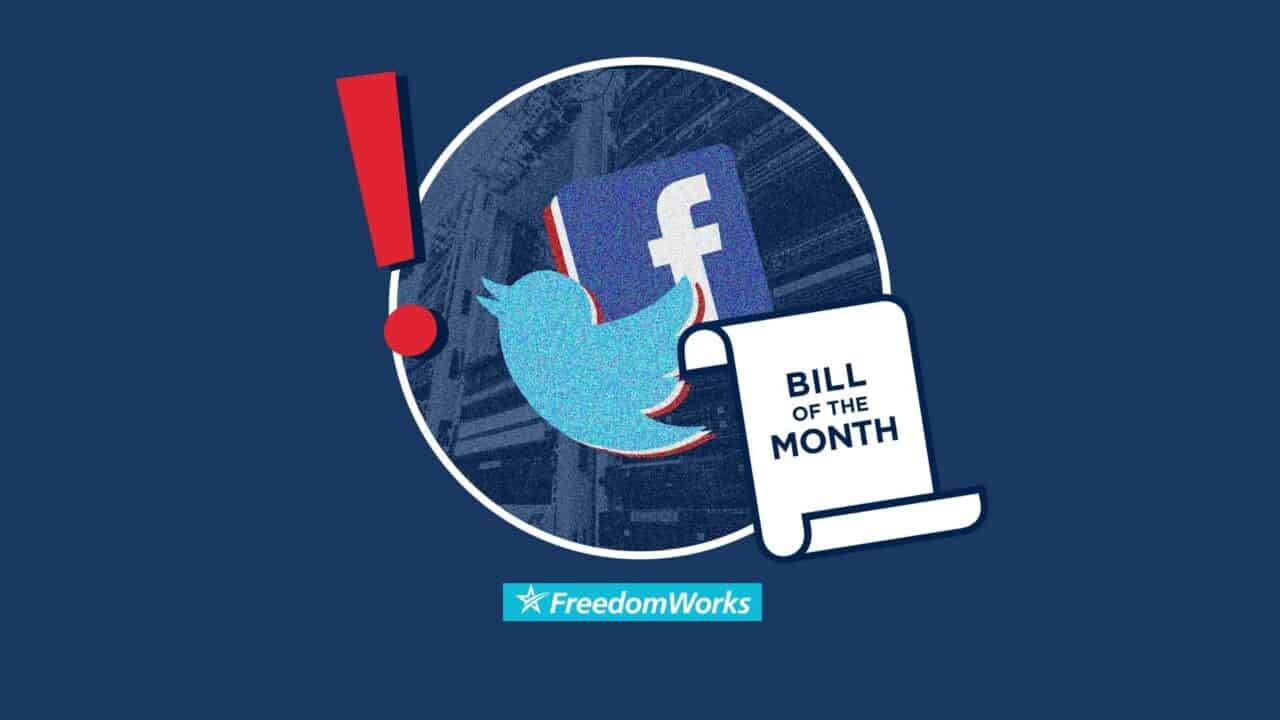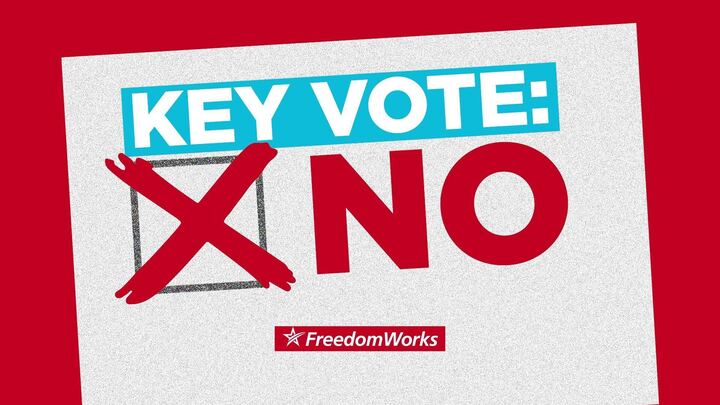Bill of the Month: The Fourth Amendment is Not for Sale Act

FreedomWorks is excited to recognize The Fourth Amendment Is Not For Sale Act (FANFSA) as our Bill of the Month for July 2022.
We’ve all watched the cringeworthy hearings where senators take turns “grilling” Big Tech CEOs over why their constituent emails have such low open rates. While the fight over regulating Big Tech rages, Americans’ 4th Amendment rights continue to be abused in other areas that do in fact require a measured response. That is why a group of bipartisan senators introduced The Fourth Amendment Is Not For Sale Act (FANFSA).
In the Senate, the bill enjoys 20 co-sponsors ranging from Sens. Rand Paul (R-Ky.) to Bernie Sanders (I-Vt.). The House companion bill is sponsored by Judiciary Chairman Jerrold Nadler (D-N.Y.).
Background
- The Fourth Amendment protects the right to be free from unreasonable searches and seizures, unless the government acts with a judicially granted warrant supported by probable cause or there is an applicable exception to the warrant requirement.
- The Supreme Court has recognized that the Fourth Amendment provides protection from government searches when a person has a subjective expectation of privacy that society recognizes as objectively reasonable. However, the Court has also held that a person does not have a legitimate expectation of privacy in information knowingly shared with third parties.
- Congress has passed several statutes to combat the third-party doctrine that provides protection when the government seeks your information from internet, wireless, social media, or email providers.
- Under the Stored Communications Act (SCA), these providers are considered either electronic communication services (ECS) or remote computing services (RCS). This means the government needs some form of court approval to access your content from a provider. For example, when a subpoena required Facebook to disclose private messages, a federal court quashed the subpoena because it did not comply with the stringent standards of the SCA. See Crispin v. Christian Audigier, Inc. (C.D. Cal. 2010).
The Problem
- The SCA does not protect consumers from data brokers that collect consumer information from common apps or websites.
- If the government wants your information, they need no court approval. As a result, data brokers like Venntel can collect location data from smartphones and sell it to government agencies. Or even worse, data broker Clearview AI can create a massive database of photos from Facebook, LinkedIn, and Twitter and sell it to government agencies.
The Solution
- The FANSFA would amend the SCA to treat data brokers just like it treats an ECS or RCS.
- The same court approval standards that apply when the government wants your personal messages from Facebook or Twitter will now apply when the government wants your information from Venntel, Clearview AI, or any other data broker.
- The legislation explicitly prohibits the government from getting access to your information held by data brokers unless SCA processes are followed. Moreover, the bill prohibits the government from purchasing your information from data brokers.
- In the event the government does illegally obtain your data, it cannot be used as evidence in a court or legislative body. FANFSA also prohibits the attorney general from offering civil immunity to providers that assist the government in illegal surveillance. Importantly, providers retain immunity if surveillance assistance is ordered by a court.
This legislation requires the government to go through the same court approval process as if it sought your personal messages from Facebook or Twitter. Your information is important. The government should not be able to buy it from data brokers because you decided to browse the internet. Congress must reignite the fight to protect the privacy of all Americans and pass FANSFA to close this loophole.







